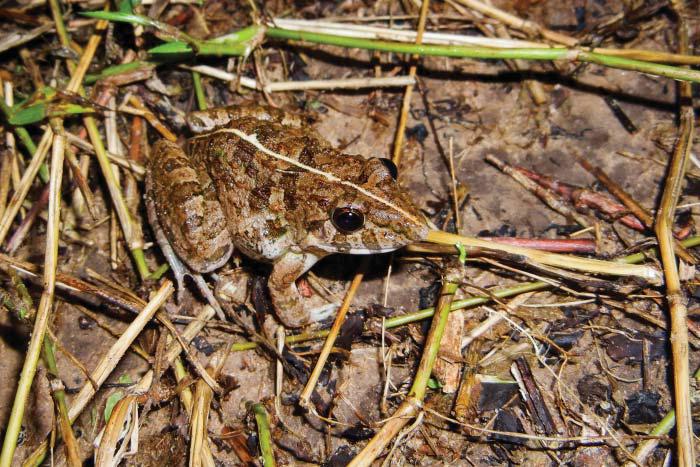Benjamin Hayes
Other projects
9 May 2014
Establishing Community Patrolling to Protect the Endangered Indochinese Silvered Langur, Phnom Kulen National Park, Cambodia
The aim of the project is to carry out a biodiversity survey of PKNP, determine species richness and areas of conservation concern, to provide training, and combine efforts with community development.

Fejervarya limnocharis. ©TC.
Illegal logging, land clearing for agriculture and wildlife hunting has long been a problem in Phnom Kulen National Park (PKNP). However, as detailed surveys have not been undertaken to date, it is unknown what effect this has had on the park. Most large mammals such as Asian Elephants and Tigers have already disappeared from PKNP, while numerous other globally and regionally threatened species, such as gibbons and other primates, are still known to occur. There is a stark lack of knowledge on the overall biodiversity of the park and surveys are much needed. More exact knowledge and capacity building is required to assist in directing long term effective community work to the relevant areas of the park as well as the overall protection of the park’s natural resources.
This will be the first comprehensive biodiversity survey of PKNP. In order to determine areas and species of conservation concern within the park, surveys of mammals, birds, reptiles, vegetation and habitat mapping for land uses shall be conducted. To ensure any seasonal variation (dry and wet season) in species diversity, the survey is expected to be spread over a period of one year, thus giving a more detailed account of the species present. Surveys shall be conducted using methodologies such as camera trapping and night-spotting for mammals, including mist-netting and harp-trapping for bats, vegetation surveying for the inventorying and documentation of phytodiversity, and GPS habitat mapping shall be produced using satellite imagery, aerial images and ground truthing.
This information will help determine the key threats posed to the biodiversity of the park, and significant areas of conservation value will be used as a zonal indicator for prioritising these efforts. Local counterparts will be provided with much needed capacity building and training in field methodologies and monitoring, thus enabling them to contribute towards future conservation and community work. The results of these surveys will be directly linked to facilitating community development within the park, with the goal to promote sustainable conservation of PKNP’s biodiversity. They shall help target and impress the need for alternative livelihood work in the surrounding communities and further conservation efforts for protecting the parks’ natural resources.